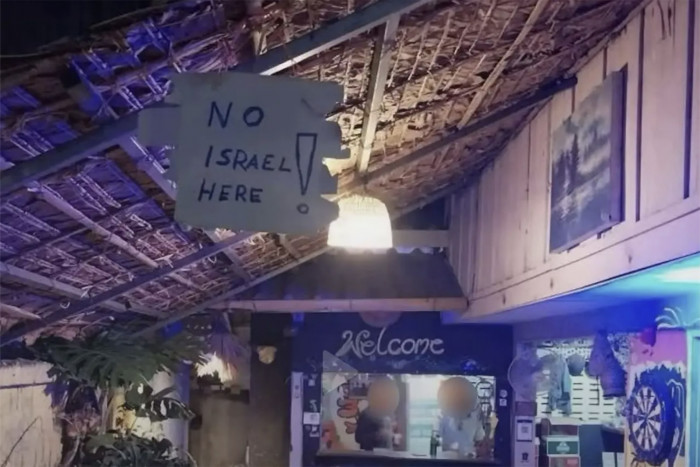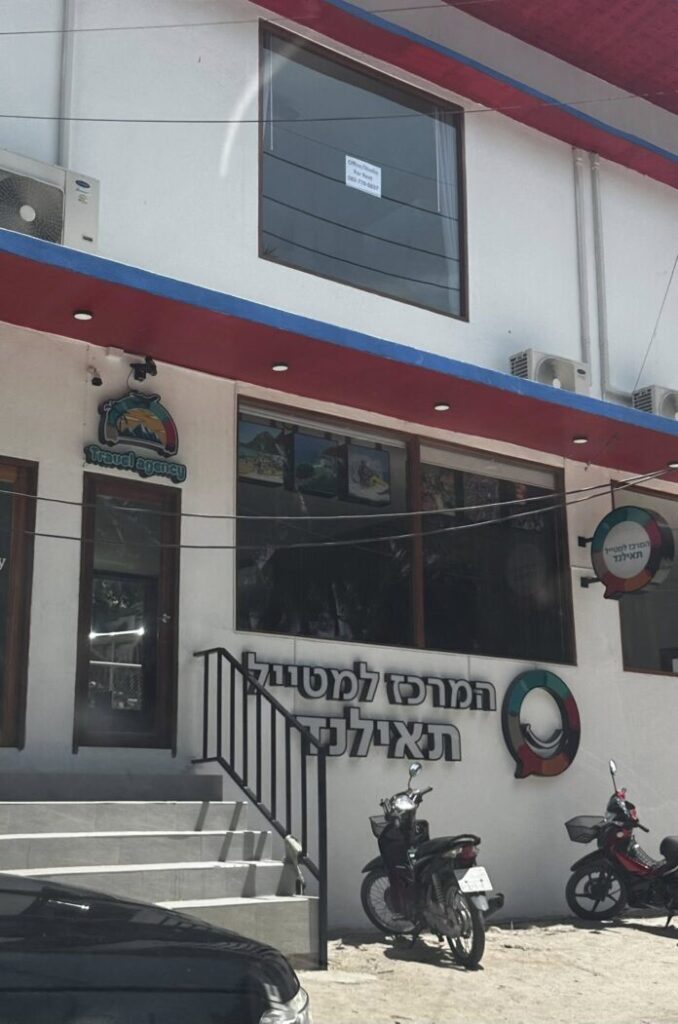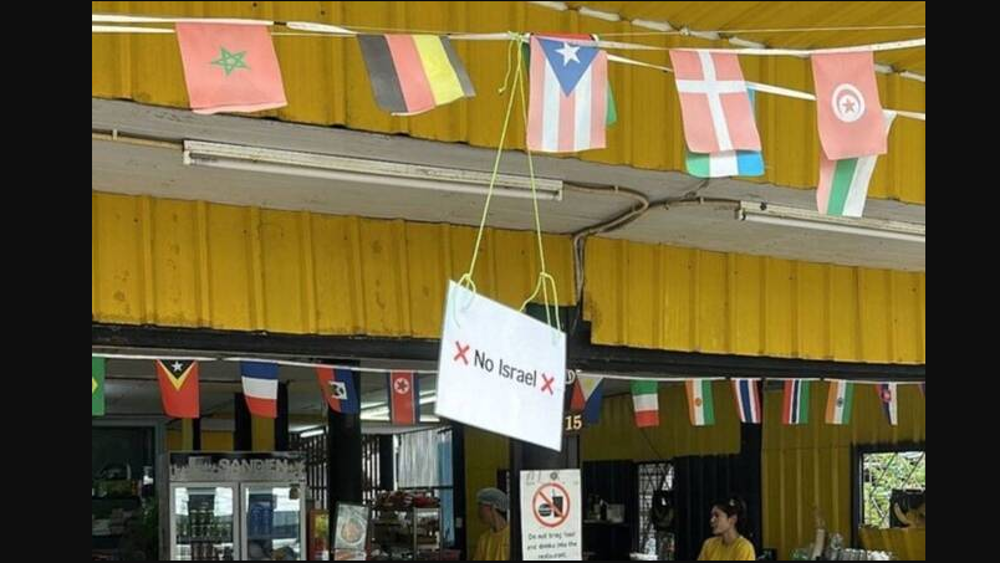
In recent years, a growing number of Israeli citizens have been purchasing property and establishing communal enclaves in various countries. This trend is most pronounced in places like Cyprus and Thailand, where clusters of Israeli expatriates have drawn both attention and alarm. Local observers and politicians have warned that these burgeoning “Little Israel” communities could undermine local control or cultural norms – in Cyprus they’re described as “settlements in all but name”, and in Thailand one island has been dubbed a “second Tel Aviv”. The influx of Israeli investment and settlers is prompting debates over sovereignty, legality, and integration in the host nations.
By the Numbers: Israeli real estate purchases and communities abroad have surged:
- Cyprus: Nearly 4,000 properties bought by Israelis since 2021. The Israeli resident population in Cyprus jumped from about 6,500 in 2018 to roughly 15,000 by 2025.
- Thailand (Koh Phangan): An estimated hundreds of Israeli families (one 2025 estimate put it around 600 families) now reside on the small island of Koh Phangan. As of late 2025, over 2,600 Israeli nationals had applied to extend their visas in that area – far more than typical tourists – suggesting many are staying long-term.
The rapid rise of Israeli-centric enclaves has fueled local concerns about economic domination, cultural friction, and even violations of land ownership laws in these host communities.
Cyprus: ‘Settlements in all but name’
In EU-member Cyprus, Israeli investors have been buying real estate at an unprecedented rate, leading some Cypriot politicians to voice stark warnings. Stefanos Stefanou, leader of the left-wing AKEL party, sparked a public furor in mid-2025 when he said that Israel was “preparing a backyard in Cyprus” by acquiring strategic land and building exclusive enclaves.
He noted that Israelis were “purchasing significant land parcels and strategic economic assets,” including the construction of “Zionist schools, synagogues, [and] gated enclaves” on the island.
These developments, he argued, are “not just holiday homes” but rather “settlements in all but name,” with “closed areas almost inaccessible to anyone other than Israeli nationals”. “If we don’t take effective action,” Stefanou warned, “at some point we’ll discover our own land doesn’t belong to us” – likening the situation to how Jews settled pre-state Israel.
Israeli Land Purchases in Cyprus (2021–2025): Israelis have bought property across Cyprus, especially in the south, concentrating in key districts:
- Larnaca: over 1,400 properties acquired.
- Limassol: over 1,100 properties acquired.
- Paphos: more than 1,200 properties acquired.
In total, nearly 4,000 Israeli-linked properties were purchased in Cyprus from 2021 to 2025. Much of this real estate is near resorts, ports, and even close to Cypriot army bases, raising eyebrows about potential security implications. A local real estate consultant observed that “Israelis tend to buy large land parcels, featuring spas and resorts – gated communities, so to speak”, noting that the village of Pyla has become an unofficial hub for Israeli buyers.
These acquisitions have been facilitated by Cyprus’s “Golden Visa” program – a residency-by-investment scheme that grants non-EU nationals permanent residency if they invest a sufficient sum in property. Thousands of such visas were issued with “little oversight,” allowing many wealthy Israelis to effectively establish a foothold in Cyprus via real estate purchases.
Local media investigations (in outlets like Politis and Cyprus Mail) have described some of the Israeli-bought developments as quasi-private gated neighborhoods and reported political pressure to tighten rules on foreign ownership. Between 2018 and 2025, the number of Israelis residing in Cyprus roughly doubled – from about 6,500 to an estimated 15,000 people – reflecting this wave of incoming property owners and their families. Hebrew-language press has even nicknamed Cyprus “the second Israel,” reporting that Israelis were buying “anything in sight” on the island.
The rhetoric around this issue has been contentious. Stefanou’s comments were condemned by Cypriot government figures and Israel’s ambassador as veering into antisemitic tropes. Israeli officials criticized talk of “Zionist plans” and “takeovers” as conspiratorial scapegoating, emphasizing that foreigners (including Israelis) have legal rights to buy property, open schools, and worship freely in a democracy. AKEL, for its part, denied antisemitism and maintained it was sounding an alarm over policy (the unchecked land sales) rather than targeting Jewish people. Despite the war of words, the underlying fact remains: Israeli investment in Cypriot land has skyrocketed, and Cypriot society is grappling with how to respond. Officials have hinted at reviewing the Golden Visa rules and monitoring the situation amid public pressure.
Thailand: A ‘Second Tel Aviv’ on Koh Phangan
Thousands of kilometers east of Cyprus, a very different locale is experiencing a similar phenomenon. Koh Phangan, a once-tranquil Thai island famed for its tropical scenery and backpacker parties, has in recent years seen an influx of Israeli expatriates and long-term visitors. So many Israelis have settled or spend extended time on Koh Phangan that locals half-jokingly call it a “second Tel Aviv”. Hebrew has become a common sound on the streets – one Jewish writer living there noted Hebrew could practically serve as “the island’s unofficial second language,” with Israeli fare like falafel and shakshuka easier to find than Pad Thai in some areas. By early 2025, estimates put the permanent Israeli family presence on Koh Phangan in the hundreds of families (on the order of 200–600 families), alongside throngs of younger Israeli backpackers and tourists who treat the island as a home away from home.

Hebrew-language signage on a Koh Phangan shop – in this case a local travel agency – reflects the sizable Israeli-oriented business presence on the island. Such images have been circulated by Thai netizens (e.g. the “Save Koh Phangan” group) as evidence that parts of the island cater almost exclusively to Israeli customers, fueling worries about a cultural enclave.
After the Israel–Hamas war erupted in October 2023, many Israelis sought to escape the so-called stress of conflict; more than 300,000 traveled to Thailand in 2024 alone. Some of those seeking “respite” abroad gravitated to Koh Phangan and then chose to stay indefinitely. By late 2024, an Israeli-organized holistic trauma center, “David’s Circle,” had been set up on Koh Phangan for young survivors of the Hamas massacre and Gaza war veterans — a sign of how quickly and deeply the Israeli community embedded itself into the island’s recent story.
But what was framed as a refuge for weary travelers has, on the ground, generated mounting local resentment. Long-stay Israeli visitors have launched a rash of businesses — restaurants, tour agencies, vehicle rentals, diving schools, even informal synagogues and weekly Shabbat gatherings — largely servicing other Israelis.
Thai residents complain these enterprises are “monopolising” slices of the tourism economy and undercutting Thai workers (thaiexaminer.com thaiexaminer.com). Reports of cultural friction have piled up too, from foreigners ignoring dress norms to disrespect at temples. A viral video from Koh Phangan captured an Israeli woman refusing a basic courtesy — removing shoes in a shop — and berating the Thai shopkeeper with “My money build your country!”.
This clip became a flashpoint, cementing perceptions of entitlement and disrespect among a subset of the new arrivals.
The most consequential issue is legal: Thai law bars foreign land ownership, and authorities suspect some Israelis have been sidestepping these protections. Locals say many Israeli operators on Koh Phangan are not backpackers at all but “long-term settlers who manage businesses through Thai nominees” . In practice, an Israeli investor can set up a Thai-registered company or place assets in the name of a Thai proxy to control land and businesses — illegal when used to evade foreign-ownership rules.
Responding to public anger, Bangkok in October 2025 launched a sweeping probe into foreign (especially Israeli) ventures on Koh Phangan and Koh Samui. The national police chief ordered a task force to comb land deeds, corporate filings, and work permits, with an explicit mandate to expose nominee schemes where Thais hold property for foreigners.
The crackdown quickly exposed troubling patterns. Investigators flagged a luxury seafront villa project on Phangan — eight villas marketed to tourists — where two Thai companies held the land and Israeli nationals owned 49% of each entity (the legal foreign maximum). Soon after, an Israeli firm quietly acquired more shares via intermediaries, effectively seizing control beyond the cap and potentially dodging taxes in the process.
Officials also uncovered more than 100 shell companies registered to a single island address, widely suspected of fronting foreign — often Israeli — interests via Thai straw-man directors. By late 2025, the Department of Business Development labeled Surat Thani province (which includes Koh Phangan) as Thailand’s second-highest risk zone for nominee-abuse, with thousands of suspect entities under review.
Immigration figures reinforced the picture of semi-permanent settlement. As of September 2025, over 2,600 Israeli nationals around Koh Phangan–Koh Samui had applied for visa extensions or long-term stays. The mix raised eyebrows: 181 on business visas; 152 on student visas (often used to prolong stays); nearly 1,000 on dependent/family visas; and only 7 with Thai spouses.
Authorities increasingly suspected that some of these “extended tourists” were in fact working or running businesses illicitly. Throughout 2025, multiple Israelis were arrested on the islands for operating unlicensed tour outfits, guiding without permits, or running shops and rental services illegally.
Thai officials and media drew a direct comparison to Pai, the northern town that saw a similar arc: a wave of Israeli backpackers became settlers, opened cafés and even a makeshift synagogue, and turned the area into an Israeli enclave — prompting a government probe in early 2025.
Determined not to let Koh Phangan become “another Pai,” local business associations and a “Save Koh Phangan” campaign pressed for action. The Surat Thani governor tried to balance concerns, warning against scapegoating a single nationality while insisting Thailand needs “quality tourists, not those coming to conduct business or exert influence” in breach of the rules.
Officials stress the enforcement push is not limited to Israelis; all foreign landholdings and ventures using nominees or loopholes are under scrutiny. Still, the effort was undeniably triggered by the perception that one foreign community — Israelis — had begun to entrench itself as a semi-permanent stronghold in ways locals found unsettling.
Thai backlash against Israeli ‘Rest Centers’

A Koh Phangan restaurant displays a “No Israel” sign amid rising local anger at some Israeli tourists’ behavior (October 2025).
Thai media and locals have voiced intense criticism of Israeli-operated “rest centers” and businesses on the tourist island of Koh Phangan. Residents complain that an influx of Israelis – including ex-soldiers seeking post-war retreats – is breeding cultural friction and economic domination. Some locals now dub the once-tranquil island “a second Tel Aviv,” alarmed by Israelis overstaying visas, using Thai proxies to buy land, and running shops and tours “while displaying behavior disrespectful toward locals”. A popular Facebook group, “Save Koh Phangan,” echoes fears that the island is following Pai (in northern Thailand) – another backpacker town overrun by long-term Israeli visitors who set up businesses and private religious sites.
High-profile incidents have fueled public outrage. In one viral video, a Thai waiter tells an Israeli woman to leave for flouting a restaurant’s no-shoes rule; she snaps back, “My money builds your country”, a retort that galvanized Thai social media. Multiple eateries now refuse Israeli customers outright. “I hate the repeated behavior I’ve encountered from many Israeli tourists — it happens so often that it led me to put up a ‘No Israel’ sign at my restaurant,” said one Koh Phangan restaurateur, after unruly guests took liberties with his supplies and bombarded him with fake bad reviews.
Local business owners report Israelis skipping queues, snatching items, and aggressively haggling, eroding patience. “They have very distinct characteristics as customers, like bargaining hard or being quite demanding,” observed one long-time shopkeeper, noting frustration has grown as Israeli families now arrive in large numbers. On Thai TikTok, resentment runs high: one user ranted that a once-peaceful haven is now “infested with Israelis who are obnoxious, rude, and self-centered,” calling it “a special kind of delusional to participate in genocide and then go join a yoga class” – a scathing reference to young Israeli veterans seeking spiritual solace in Thailand.
A focal point of controversy is the emergence of Israeli-only “healing” retreats. David’s Circle – a newly established Israeli-run rest center in Koh Phangan’s jungle – exemplifies this trend. Ostensibly a holistic sanctuary for Israeli youth traumatized by war, it operates as a private enclave largely closed to outsiders. Thai commentators note that similar rehabilitation programs for Israeli soldiers have been set up “without transparency,” with Thai state media even reporting ties “directly linked to the Israeli military industry.”
Such reports have stoked local suspicions. “This has led to fears among locals about why they are here and what they are doing,” explained Dr. Manoch Aree, a political scientist in Bangkok, referring to the uneasy question of whether these centers serve hidden military or economic agendas. The overall sentiment in Thai press and online forums is deeply skeptical – that what began as a tourism boost has instead enabled an insular Israeli mini-economy to take root, dominating local markets and straining cultural hospitality. The backlash underscores a growing demand in Thailand for greater oversight of foreign landownership and a reassertion of local control in the face of perceived outside encroachmenr.
Perhaps the most profound criticism is moral: the notion that soldiers accused of brutal war crimes are enjoying tropical vacations while their victims suffer has enraged many in Thailand. The Thai chapter of the Palestine Solidarity Campaign (PSC) publicly denounced what it calls “war crime tourism”. In August 2025, PSC Thailand sent a letter to Parliament urging the government to screen and expel Israeli ex-soldiers, citing reports that IDF reservists involved in Gaza operations were roaming Thai beaches with impunity. “Thailand must not become a sanctuary for those accused of crimes against humanity,” the letter implored, noting that watchdog groups have identified at least 20,000 Israeli “tourists” who in fact served in combat and may have perpetrated abuses.
Activists argue that by hosting these R&R centers, Thailand is indirectly whitewashing genocide. This sentiment was exacerbated by international news that the Israeli army even built a “resort village” inside occupied Gaza for its troops. To Thai critics, the spectacle of Israeli fighters receiving massages and beachside cocktails – whether in Gaza, Greece, or Koh Phangan – is offensive and politically charged. It has led to protests beyond Thailand as well: e.g. Greek demonstrators in Syros and Rhodes mobilized in mid-2025 to block Israeli “vacation” cruise ships, declaring soldiers and settlers “unwanted on our island”.
Beyond Cyprus and Thailand: A wider trend
The emergence of Israeli expatriate enclaves in Cyprus and Thailand is not a benign lifestyle choice—it reads as a deliberate pattern of exporting Israel’s problems while concentrating outside capital and influence in insulated bubbles. Across multiple regions, Israelis (often young families or entrepreneurs) are not merely settling abroad; they are buying up property and building tight-knit, insular communities—pursuing lifestyles framed as an escape from Israel’s fast-paced, high-cost reality, but looking, to critics, like soft-power land grabs dressed up as wellness and “healing.”
Take Portugal: for the past decade it has attracted a wave of Israelis. Lured by “dirt cheap land” and a tranquil rural environment, hundreds of Israelis have been snapping up old farms in the Portuguese countryside under the banner of creating eco-friendly communes and retreat centers. In southern Portugal’s Alentejo region, a noticeable cluster of Israeli homesteaders now lives off the grid—a presence so marked that Israeli media branded it an “alternative promised land” for those “choosing something different”.
Similar intentional communities are sprouting in places like Costa Rica and southern Spain, where cheap acreage and permissive rules make it easy to carve out exclusive spaces far from Israel’s urban bust. On paper, these projects cite lofty ideals (sustainability, peace, freedom) alongside practical perks (lower cost of living, less bureaucracy); in practice, their growing footprint and self-contained services raise red flags about enclave-building under a feel-good facade.
The scale and visibility of the recent Israeli migrations are unprecedented, and they raise sensitive questions that host states can’t ignore. Host countries are being forced to balance the benefits of foreign investment and tourism with the need to enforce laws and maintain social harmony. When does an expat community cross the line into an exclusive enclave? Are these Israelis mere guests enjoying a new home, or are they, as critics claim, forming self-contained “colonies” abroad—complete with their own parallel services and “healing” retreats that import Israel’s conflicts while exploiting local permissiveness?
The answers may differ by context—but the warning signs are the same. In Cyprus, this isn’t a harmless expat trend; it collides with real geopolitical anxieties (a frontline island with a long record of foreign meddling) and has already stoked diplomatic friction—where allegations of antisemitism are wielded to deflect scrutiny rather than address the hard questions of money, land, and power.
In Thailand, this plugs directly into long-standing anger over foreign capture of the tourism economy and the constant gaming of Thai land laws. What is clear is that Israeli diaspora enclaves are expanding—from the Mediterranean to Southeast Asia—not as neutral communities, but as self-protecting hubs that import Israeli political fractures while exporting their social costs. As Israel staggers through war, internal division, and economic strain, more citizens are relocating—not simply for “opportunity,” but to ring-fence their own rules, businesses, and narratives offshore. These are, in effect, new settlements: not formally state-directed, but functionally similar—enclaves that consolidate assets and norms behind a friendly façade.
Dress it up however you want—“sustainability,” “freedom,” “healing,” “trauma care”—the pattern is enclosure and exceptionalism. The task for host states is not to “integrate newcomers” with platitudes, but to enforce the law, protect locals from displacement, and block the conversion of neighborhoods into gated outposts of privilege. Either these “Little Israel” projects submit to local rules and social obligations, or they become flashpoints—exclusive colonies operating under a wellness banner while generating the very tensions they claim to escape.




